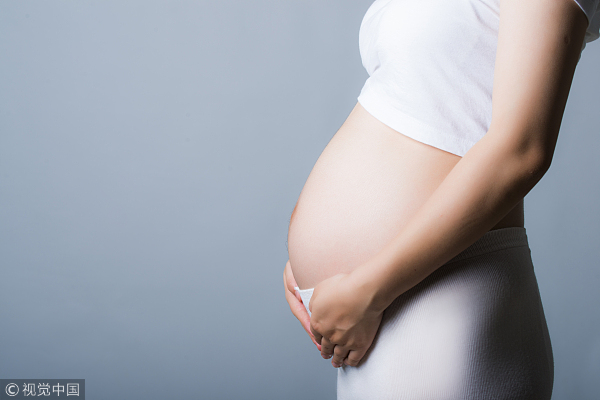No evidence found of mother-to-baby transmission


Although infection by the novel coronavirus may have adverse effects on newborns, recent medical research has yet to confirm mother-to-baby transmission.
Effects on newborns include fetal distress, premature labor, respiratory distress and even death, says the research, which was recently published ahead of print on the bimonthly journal Translational Pediatrics.
Conducted by a Chinese medical group, the research analyzed 10 newborns (including two twins) delivered by nine women who were infected by the novel coronavirus in Hubei, the epicenter of the outbreak.
Based on samples selected from Jan 20 to Feb 5, the research reveals that all the neonatal swabs tested negative for the novel coronavirus.
However, researchers said that the possibility of a false negative could not be ruled out, and there is still a lack of evidence to support transmission from mother to baby before or after birth.
"Our study was limited by its small sample size, and studies with large samples are needed to further validate our findings," said Xia Shiwen, director of the neonatal department at Hubei Maternity and Child Healthcare Hospital who co-authored the research.
If conditions allow, she said more specimens-including umbilical cord blood and amniotic fluid from the mother and serum, gastric fluid, anal swabs or stools from the newborns-can be collected to optimize the detection rate.
Mothers observed during the research were an average of 30 years old. None of them had received antiviral treatment before delivery.
The research shows that the most common clinical symptom observed in these babies was shortness of breath, although other symptoms, such as fever, rapid heart rate and vomiting were also observed.
Gastrointestinal symptoms such as feeding intolerance, bloating, refusing milk and gastric bleeding were seen in four babies.
"But there is no clear evidence to show that those symptoms are directly related to the infection of their mothers," Xia said.
She explains that mother-to-child transmission of respiratory viruses mainly occurs through close contact, transmission via caregivers, family members and visitors, hospital-acquired infections and exposure to infection in public places.
Despite a lack of evidence to support mother-to-child transmission, Xia said isolation is still required before delivery. In addition, she encouraged close cooperation between obstetric and pediatric departments to deliver well-prepared resuscitation for newborns in the delivery room.
"Considering that the virus has a pathogenic potential to cause severe maternal or perinatal adverse outcomes, we recommend systematic screening of any suspected infection during pregnancy and extend intensive follow-up for confirmed mothers and their fetuses," she said.
Further, Xia said breast feeding is no longer encouraged for infected mothers, though they can start breast feeding after recovery, she said.
- China's CR450: A new era of high-speed rail at 400 km/h
- TAN SUO SAN HAO to pioneer future of deep-sea exploration
- Xi's discourses on Chinese modernization published in Japanese
- Officials summoned over alleged garbage bin food served to students
- Caring hearts help to enhance quality special education
- Xi sends condolences to South Korean acting president over plane crash




































